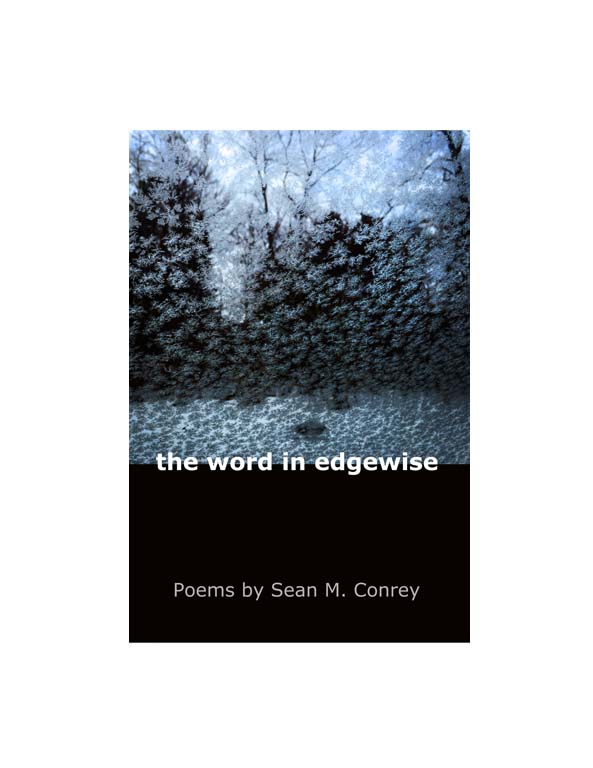The Word in Edgewise by Sean M. Conrey
The Word in Edgewise by Sean M. Conrey
Finalist, Brick Road Poetry Prize
This book is Out of Stock at Brick Road Poetry Press.
Please click here to order The Word in Edgewise from Amazon.
6" x 9" (15.24 x 22.86 cm)
Black & White on Cream paper
123 pages
Brick Road Poetry Press, Inc.
BISAC: Poetry / American / General
The Word in Edgewise takes its edge seriously, risking the line between argument and meditation to calm and surprise at every point. A love poem begins, “Sometimes it takes a meat hook/well, actually two of them, to keep my mind open” or worry is made real by restrain in a sequence that richly tracks a father's illness until darker, more dangerous questions get crossed by dream. “Tell me, is God like a big hole/or a bright light?” the poet asks. “Do all the stars fall at once?” They don't—not in this remarkable book where each poem stays and haunts.
—Marianne Boruch, author of Cadaver, Speak
In The Word In Edgewise, Sean M. Conrey writes ballads of intimate human moments, backed by a landscape that is so palpable, we’ll reach into our memories for it like home. Conrey’s poems honor “the good fear” that “brings us into our skin” and as a result, they bring us that much closer to whomever and whatever it is that we love. The present moment may be all we have, but when Conrey wonders, “if we could see the river without us,” he widens time and offers a kind of company that’s “all solitude without loneliness.”
—Jesse Nissim, author of Day Cracks Between the Bones of the Foot, and Alphabet for M
Sean M. Conrey is an elemental poet obsessed with water. The Word in Edgewise starts with images of a tsunami, rain, Noah’s flood, rivers in flood, Charon as a fisherman fly-fishing the River Styx, and “teenagers texting at Niagara Falls.” In fact, those teenagers might well be a figure for the poet himself. He is texting us
while 202,000 cubic feet of water per second thunder by. Here poetry is a word inserted edgewise into time’s deafening flow rate. In colloquial blank verse, free verse, and occasional sonnets, Conrey speaks of natural disasters, war, his conversations with his mother and sister while his father undergoes major surgery, the tensions between men and women, and—unabashedly—of love. One poem remembers his father saving him from drowning at age six: “That could have been the end of you, / he said, and held me up like a trophy / near the water’s edge in the sunlight.” Reader, the book you’re holding is also a trophy, wrested from dark waters and brought breathing into poetry’s pure, hard light.
—Donald Platt, author of Dirt Angels

